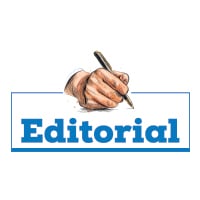
The worst of times
The arrest of Pakistan Tehreek-e-Insaf (PTI) leader Fawad Chaudhry remains one of the key headlines this week, highlighting the ever-intensifying political temperature in the country. The controversial appointment of Mohsin Naqvi — the journalist-turned-media owner — as caretaker chief minister Punjab, and the PTI’s subsequent thumbs down on the Election Commission of Pakistan’s (ECP) decision were among the other headlines defining the troubling mood of the moment. National Assembly Speaker Raja Pervaiz Ashraf’s earlier contentious decision to suddenly accept PTI MNAs’ resignations, pending since April 2022, added more fuel to the already raging fire. All these steps taken by the government and the ECP have further upped the ante of political confrontation against the backdrop of fast deteriorating macro-economic indicators of the country. This kind of decision-making shows that the government is oblivious to the cost Pakistan will have to pay for this prolonged political confrontation and the mega-economic challenges facing it.
The sharp erosion of the Rupee’s value in two straight sessions, on Thursday and Friday, is all set to further push inflation – already hovering at the back-breaking level of 24.5 per cent – to the dangerous mark of 35 per cent and above. The State Bank of Pakistan’s decision to further jack up the interest rate to 17 per cent is also set to squeeze and stifle economic activities, which are already on the decline. But the Shehbaz Sharif-led government, instead of trying to defuse the political temperature and holding Finance Minister Ishaq Dar accountable for creating all this economic mess, is focused on victimizing and punishing its lone political opposition – the PTI. In doing so, the government is trampling upon every democratic norm and convention and undermining many of the fundamental rights guaranteed in the constitution. Indeed, these are the worst of times for Pakistan and Pakistanis, as some of the most corruption-tainted political dynasties have been thrust upon them through questionable means in the garb of democracy.
Why many Pakistanis stand disillusioned with the current political order and this so-called democracy for the elite, of the elite and by the elite can best be understood by the way the system failed to even hold free and fair local government elections in urban Sindh. From controversial delimitation to the election-day rigging and post-election manipulations, the provincial ruling party played all the tricks in its bag to get favourable results.
It is now an open secret that the government wants to avoid elections at every cost, and crush the opposition by using the state machinery. Fawad Chaudhry’s arrest is only the beginning of testing times for Imran Khan and his PTI. There are reports that the government is toying with the idea of arresting Imran too, and dealing with any protests by the proverbial ‘iron hand.’ But the state institutions as well as those in the government must know that there are always unintended consequences of every action and manipulation. Especially, when the action and manipulation are done to perpetuate the power of the elite and deny the people the right to elect a government of their choice. Pakistan has been down this road many times in the past, and has suffered because of it. A repeat of the old tried, tested and failed experiments, albeit with new tactics, could prove disastrous for the country. Can Pakistan afford to be in that mess once again? Perhaps the bigger question is why should it?
Pakistan does not need the same old faces, political families and dynasties recycled at every level of power. What it needs is for the country’s educated professionals, middle and lower-middle class individuals the represented, and reforms that can pave the way for a genuine representation of workers and peasants in the assemblies and decision-making forums. Only then, can we say that Pakistan’s democracy is truly representative of its citizens, and works for the people rather than against them. However, instead of moving in the right direction, the Pakistani elite remains hostage to the manipulative politics of the 20th century in a 21st century Pakistan. But the antics of dynastic politicians cannot stop the wheel of change from turning. And under the current circumstances, the journey starts with the demand of free and fair elections and allowing the opposition, the PTI, and all the dissenting voices to make themselves heard. Is it too much to ask for in this land of the pure?









